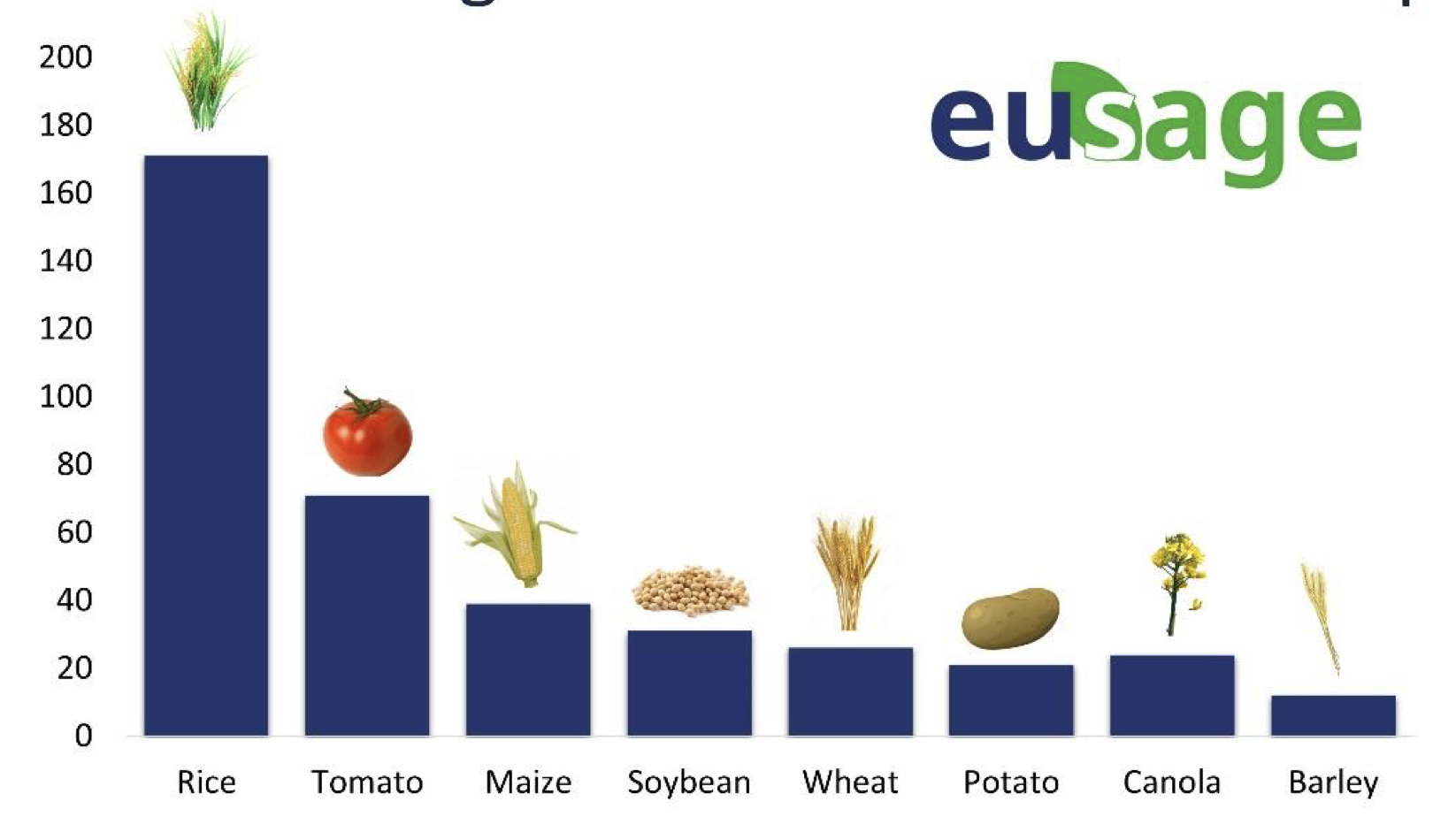Press release EU-SAGE database
New breeding techniques like genome editing allow scientists to specifically adjust the plant’s own DNA, making the plants more resilient to changing environmental conditions. To illustrate that, EU-SAGE published today an interactive genome-edited crops database. The database shows that genome editing is used in a wide variety of crops to improve diverse characteristics, many of which can contribute to more sustainable agriculture.
Since the development of the Nobel prize winning CRISPR-Cas genome editing technique for plants, many researchers have adopted worldwide genome editing in research and breeding activities to develop improved crop varieties. However, what is the latest status of scientific advancement in this exciting field of plant research?
The EU-SAGE database represents state-of-the-art scientific evidence of worldwide genome editing applications in crops for agricultural production. It contains currently more than 500 entries, and the database will be frequently updated with the latest scientific studies.
Different elements including the plant species and trait can be filtered in the interactive database, which will help to address specific questions and to support conclusions relevant in future policy discussions about this plant breeding innovation.
Key takeaways from the database:
- Genome editing applications were identified in more than 60 different crops with the vast majority in rice, tomato, maize, soybean, and wheat
- The traits of the improved crops are diverse and relevant for farmers (e.g., agronomic value) as well as consumers (e.g., nutrition)
- Most of the genome editing applications are crops with targeted, small genetic changes similar to genetic changes introduced in crops with conventional breeding methods.
The applications in the database demonstrate that genome editing can contribute in the development of new crop varieties for more sustainable agriculture. However, R&D in Europe is lagging behind, mainly due to the current EU legislation, which determines that all genome-edited crop varieties are subject to strict GMO regulations. This EU GMO legislation makes it almost impossible to place such new crop varieties on the market for cultivation in the EU and acts as an unsurmountable threshold for small and medium plant breeding companies to enter this market.
A consistent and proportionate legal framework, as already is in place in many other areas of the world, will foster the development of genome-edited crops for the EU market by public institutions and the plant breeding sector.
The database can be consulted at the website of EU-SAGE: https://www.eu-sage.eu/genome-search and a summary about the database has been published in the scientific journal ‘Trends in Plant Science’ (Copy paste this link in your browser to access the article: https://authors.elsevier.com/a/1f69u4rGdjSl-%7E).
Contact details: [email protected] [email protected]
EU-SAGE is a network representing plant scientists at 134 European plant science institutes and societies that have joined forces to provide information about genome editing and promote the development of European and EU member state policies that enable the use of genome editing for sustainable agriculture and food production (https://www.eu-sage.eu/).
